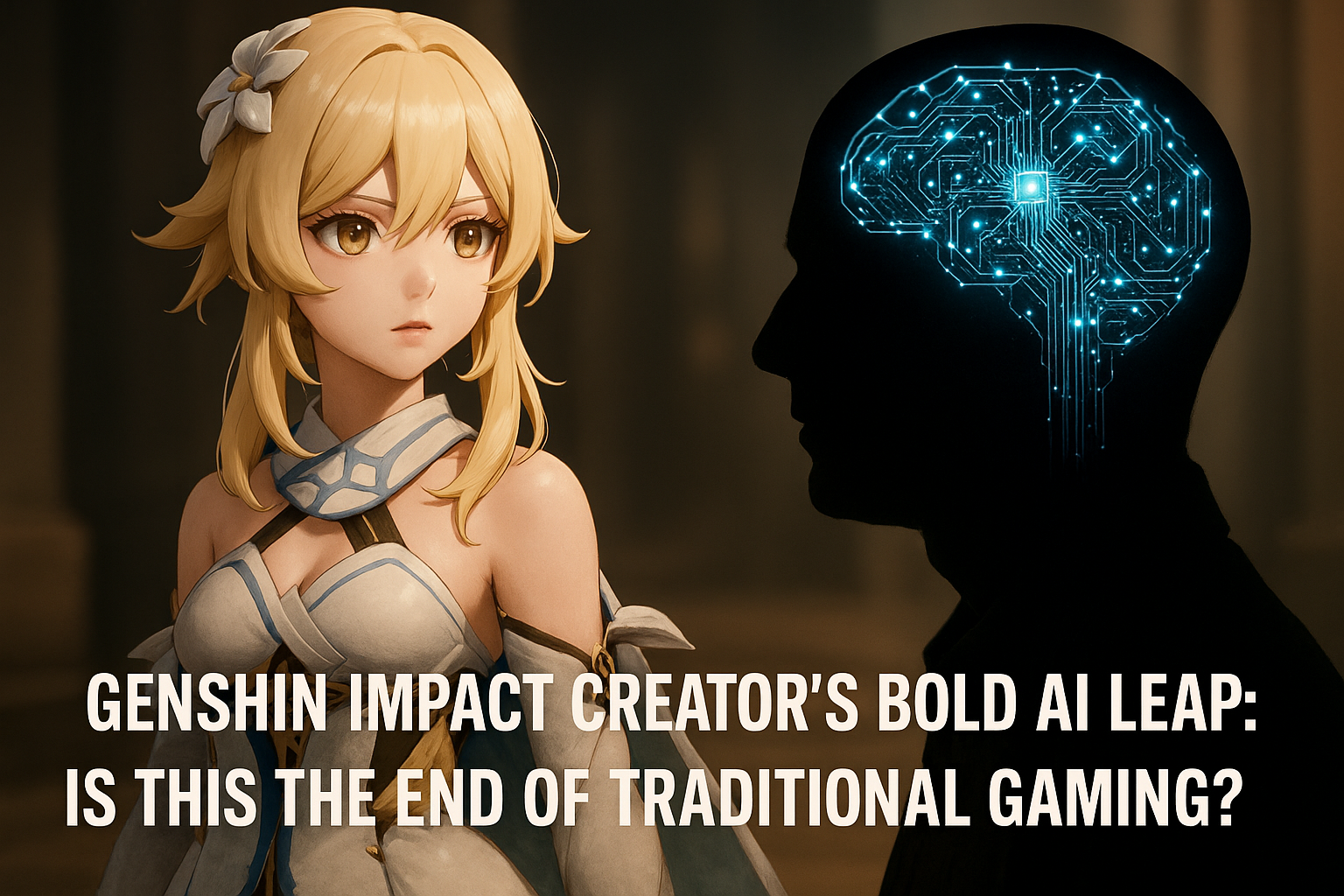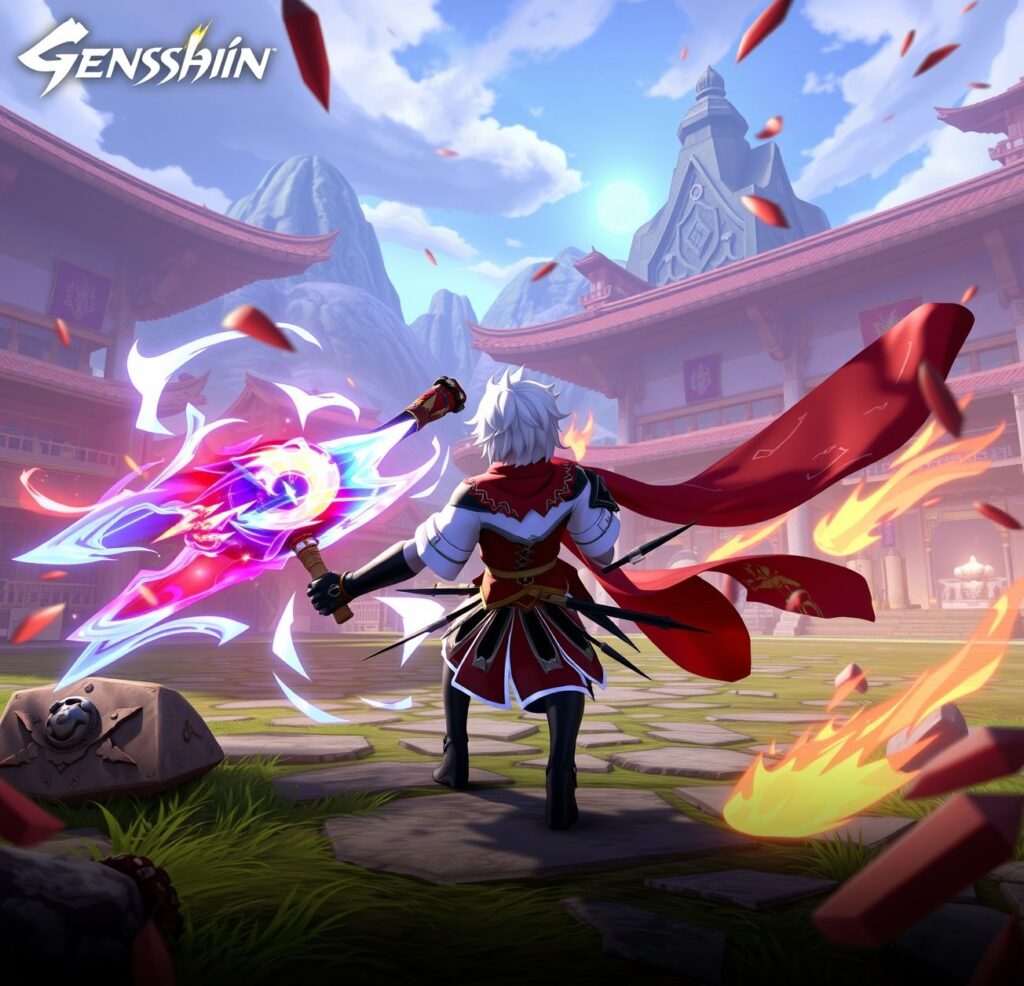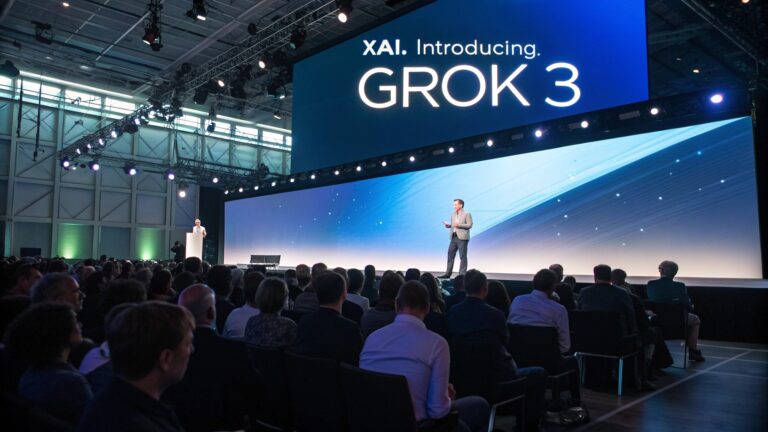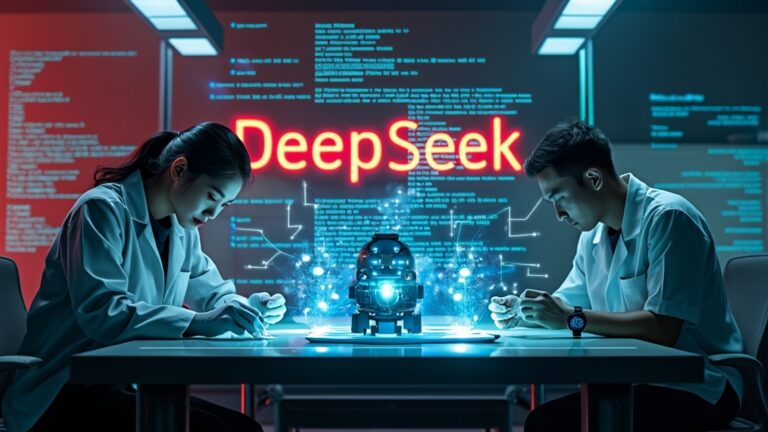Genshin Impact Creator’s Bold AI Leap: Is This the End of Traditional Gaming?

Table of Contents
The gaming world is undergoing a transformation, and at the center of this revolution stands one of the most successful gaming companies of the decade — the creator of Genshin Impact, miHoYo. Known for its massive global success with Genshin Impact, miHoYo has now set its sights on artificial intelligence (AI), signaling a major shift not just in how games are made, but in how we’ll experience them in the future. But here’s the big question: is this AI-driven evolution the beginning of the end for traditional gaming as we know it?
Let’s dive deep into what this leap into AI means for the future of gaming, what it could spell for traditional game development, and whether it’s truly a necessary change or a risky gamble.
1. The Rise of Genshin Impact: A Phenomenon in Gaming
Before we tackle the bold AI strategy of Genshin Impact’s creator, it’s essential to understand how this company rose to such prominence. Genshin Impact, released in 2020, took the gaming world by storm. Developed by miHoYo, this open-world action RPG shattered expectations with its gorgeous visuals, intricate lore, and the allure of gacha mechanics that kept players hooked for months, even years.
The Global Success of Genshin Impact
When Genshin Impact launched, it didn’t just gain a following — it became a global phenomenon. With over 40 million downloads within the first month and more than $1 billion in revenue in its first six months, the game’s success was staggering. According to reports, Genshin Impact remains one of the most financially successful free-to-play games, continually generating revenue through regular updates and expansions.
What made the game particularly special was its seamless integration of various gaming elements: exploration, action, RPG mechanics, and a visually stunning open world. For a game that was initially labeled as a “clone” of The Legend of Zelda: Breath of the Wild, it quickly became a standout experience of its own, drawing players from all over the world.
But miHoYo didn’t stop there. The company’s ambition extended beyond just making a game — it was about creating an experience. The massive success of Genshin Impact opened the doors for an entirely new approach to gaming, and now, miHoYo is charting a path that could completely alter the way we look at digital worlds.
miHoYo’s Vision for the Future of Gaming
MiHoYo has long held the ambition of going beyond traditional gaming. With its follow-up projects, like Honkai Impact 3rd, and the ongoing development of Genshin Impact, they’ve continually sought to push boundaries. However, their future ambitions are even grander. MiHoYo is not just looking to create the best games; they want to create a virtual world.
In fact, miHoYo has publicly stated its goal to connect one billion users by 2030, bringing their gaming experiences into a much broader scope. This vision includes the creation of a massive metaverse, powered by AI and cloud technologies, aiming to blur the lines between gaming, social interaction, and digital culture.
With this ambition, the company’s next step is clear: AI is the key to unlocking these next-gen experiences.
2. Genshin Impact Creator’s Bold AI Move: What It Means for the Industry
The announcement that miHoYo is diving into AI wasn’t just a passing trend — it’s a calculated move that could change the landscape of gaming itself. MiHoYo has launched an AI model known as Glossa, designed to help the company expand the possibilities of game development. So, what does this mean for the industry?
AI in Gaming: More Than Just a Trend?
AI’s role in gaming is not entirely new. We’ve seen AI used for years in creating more intelligent NPCs (non-playable characters), improving enemy behavior, and creating procedural content. But miHoYo’s venture into AI represents something far more ambitious. The company’s aim is not just to enhance NPC interactions, but to fundamentally change how games are developed and experienced. Glossa is set to revolutionize everything from in-game character dialogue to world-building, creating a dynamic and ever-evolving game environment.
Glossa is designed to automatically generate vast amounts of content, including dialogue, artwork, and story elements. Imagine a game that continually adapts to player behavior, offering new dialogues and storylines with each playthrough. This is the future miHoYo is striving to create: a living, breathing world that reacts to players’ actions and offers infinite possibilities.
The Role of AI in Game Development
For game developers, especially indie studios, AI could be the game-changer they need to keep up with the demand for high-quality content. One of the most significant challenges in game development is creating enough content to satisfy players without exhausting developers. With AI, miHoYo aims to automate many time-consuming aspects of the development process, such as generating scripts, character voiceovers, and even artwork.
By integrating AI into their workflow, miHoYo can release new content faster, keep players engaged longer, and reduce costs associated with manual labor. For larger studios with more resources, AI can even become a tool for creating more immersive worlds, where the environment and the characters themselves seem to “learn” and react to how you play.
3. The Benefits of AI for Genshin Impact and Beyond

While AI’s involvement in gaming might raise some concerns, its potential benefits are undeniable. If miHoYo’s AI ambitions succeed, players could find themselves experiencing gaming worlds unlike anything we’ve seen before.
Enhanced Player Experience Through AI
Imagine a game where the environment adapts to your actions in real-time. If you’re exploring a snowy mountain and suddenly change your course, the game’s AI could generate a completely different set of environmental effects — new enemies, weather changes, and dialogue — that weren’t there before. This is the promise of AI: creating a world that feels alive and reactive.
AI could also lead to smarter NPCs that feel more like actual people. These NPCs could remember past interactions, adjust their behavior, and even adapt their storylines based on your decisions. This level of immersion could create a bond between players and the virtual world, making experiences more personalized and emotionally engaging.
Faster Development Cycles
AI could help game studios keep up with the ever-growing demand for content. In traditional game development, creating expansive worlds and detailed characters takes years. With AI, miHoYo could streamline this process, generating complex environments and dialogue at a fraction of the time it would take a human team.
This doesn’t just benefit large studios. Independent developers, who often struggle with limited resources, could harness AI to create rich, expansive experiences without needing a massive team of developers and designers.
Future-Proofing the Gaming Industry
The future of gaming will likely be driven by AI and cloud technology. As more players demand always-online experiences, the need for constantly evolving worlds grows. AI could be the key to building these persistent, adaptive worlds that can continue to evolve after a game’s release.
MiHoYo’s vision for Genshin Impact and its broader gaming strategy is focused on AI’s ability to adapt and create dynamic content on the fly. It’s an investment in the future of gaming — one that seeks to push the boundaries of what’s possible.
4. Is AI a Threat to Traditional Gaming?
While AI holds immense potential, it also raises some serious questions about the future of traditional gaming. Could this AI revolution make the classic, hand-crafted worlds we’ve come to love obsolete?
The Decline of Human Creativity?
One of the biggest concerns surrounding AI in gaming is the potential for the loss of human creativity. Many argue that AI, while powerful, lacks the emotional depth and nuanced storytelling that a human developer can provide. When you replace human creativity with algorithms, do you risk losing the artistry that makes games so memorable?
The most iconic games in history, from The Legend of Zelda to Final Fantasy, were built by passionate developers who poured their hearts into crafting unique, imaginative worlds. Will AI-driven development result in cookie-cutter worlds that lack the personal touch and intricate design that human developers bring?
Can AI Replace Classic Game Mechanics?
Another concern is that AI might strip away the classic elements of gameplay that players cherish. From exploration and combat to complex character arcs, traditional game mechanics have stood the test of time for a reason. Can AI truly replicate the depth and strategic challenge of traditional games, or will it simply offer a more superficial, procedurally generated experience?
The Ethical Implications of AI in Gaming
Beyond creative concerns, there are ethical questions surrounding AI in gaming. For one, the automation of content creation could lead to job losses in the gaming industry. Many developers and designers worry about the future of their roles in a world where AI can do much of the work.
Additionally, the use of AI to create virtual worlds could blur the lines between reality and fiction. As AI takes over more of the creative process, players may find it harder to distinguish between the digital world and the real world, raising concerns about escapism and addiction.
5. miHoYo’s AI Vision: Expanding Beyond Gaming
MiHoYo’s embrace of AI is not limited to just gaming. The company has invested in several deep-tech sectors, signaling their broader ambitions to redefine the way we interact with technology.
Venturing into Deep Tech: AI, Semiconductors, and Beyond
MiHoYo has made significant investments in AI, semiconductors, and even space exploration. For example, the company has backed Raysolve, a company specializing in AI-powered technology, and Enkris Semiconductor, a semiconductor firm. These ventures indicate that miHoYo is not only focused on gaming but also aims to be a player in other high-tech industries.
By diversifying its investments, miHoYo is positioning itself as a major force in both the gaming and tech industries. If their AI vision comes to fruition, it could have far-reaching implications beyond the gaming world.
Creating a Virtual World: The Metaverse Ambition
MiHoYo is also focused on creating an immersive virtual world that connects players from all over the globe. Their goal is to have one billion users by 2030, and AI will be crucial in making this vision a reality. Through AI-driven technologies, miHoYo hopes to build a virtual space where users can interact, explore, and live out their digital dreams.
6. The Future of Traditional Gaming in an AI-Powered World
So, what does the future hold for traditional gaming in this new AI-powered world? Will there still be a place for handcrafted worlds, or will everything be automated?
The Survival of Traditional Game Studios
Despite the rise of AI, traditional game studios can still thrive. For one, human creativity and storytelling cannot be easily replaced by algorithms. Developers who focus on emotional storytelling, character development, and innovative gameplay will always have a place in the gaming world.
However, the key to survival will be adaptability. Traditional studios must embrace AI to enhance their offerings while staying true to the values that make their games unique.
Blending Tradition with Innovation
Rather than seeing AI as a threat, many developers will likely integrate it into their existing workflows. AI can be used to streamline repetitive tasks, like world-building or voice acting, allowing developers to focus on the creative aspects that make their games stand out.
In this sense, AI can complement traditional gaming, not replace it.
7. Conclusion: Will Genshin Impact Creator’s AI Leap Redefine Gaming or Lead to Its Downfall?
As miHoYo’s bold AI vision continues to unfold, the gaming industry stands at a crossroads. Will AI become the next great leap in gaming, creating dynamic, ever-evolving worlds? Or will it strip away the heart of traditional game design, leading to soulless, procedural experiences?
In my view, AI is here to stay, but it doesn’t have to spell the end of traditional gaming. If anything, it’s an opportunity to blend the best of both worlds — innovation with artistry. As long as human creativity continues to guide the AI-driven revolution, the future of gaming remains as exciting and unpredictable as ever.
What do you think? Is AI the future of gaming, or is there something irreplaceable about traditional game development? Let’s talk about it in the comments below.






